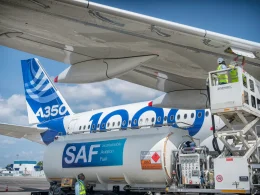Fresh commitments to accelerate renewable energy and expand access to electricity and clean cooking technologies by 2030 have pushed total finance pledged through the United Nations’ Energy Compacts framework to US$1.6 trillion, with $284 billion already mobilised, according to the latest annual progress report.
The fourth edition of the Energy Compacts Annual Progress Report, launched at the EnergyNow SDG7 Action Forum on the margins of the UN General Assembly, highlights significant advances under the voluntary initiative, which brings together governments, businesses and civil society to boost energy access and support the global transition.
Of the $284 billion deployed since 2021, the majority has come from private sector investment in renewable power generation. Yet the report underscores that far greater sums are needed. The 2025 Tracking SDG7 Report estimates more than $4 trillion in annual investment is required to achieve universal energy access, shift 2 billion people away from polluting cooking fuels, and align global emissions with a net-zero pathway by 2050.
“The world is entering a decisive moment for energy,” said Haoliang Xu, Acting Administrator of UNDP, Damilola Ogunbiyi, the UN Secretary-General’s Special Representative for Sustainable Energy for All, and Li Junhua, UN Under-Secretary-General for Economic and Social Affairs, in a joint statement. “Choices made today will determine not only whether we achieve our climate and development goals, but also how future generations experience prosperity, equity and security.”
Progress on Sustainable Development Goal 7 (affordable and clean energy for all) has been uneven. While Energy Compact proponents have provided new or improved electricity connections to 285 million people since 2021 — an increase of 108 million in the past year — progress on clean cooking access remains slow, with just 33 million additional people reached. Rapid population growth in Sub-Saharan Africa continues to outpace gains, leaving around 14 million more people without clean cooking solutions each year.
The report highlights broader benefits of the Energy Compacts, including improved electricity access at more than 10,400 health facilities, the deployment of 2.8 million electric vehicles and the installation of 336,000 charging stations. Case studies span diverse initiatives, from a woman-led, solar-powered digital hub in Guatemala to a Japanese firm offering 24/7 carbon-free energy tracking for customers.
Since the launch of the Energy Compacts in 2021 at the UN High-level Dialogue on Energy, 209 commitments have been registered. UN-Energy, which coordinates the initiative, said national governments could strengthen their updated Paris Agreement pledges by embedding energy targets in their Compacts, citing Indonesia and Nepal as examples.
The report was prepared by UN-Energy, a mechanism bringing together nearly 30 UN and international organisations, with data and analysis provided by Sustainable Energy for All.





















